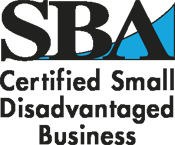No type of provider can avoid the risks of a global supply chain today. Even with the growing addition of security across the supply chain, risks exist across ocean, land and air freight. These risks are often unavoidable and inevitable for global supply chain businesses since there is no way around them.
A poor understanding of hazards and complications across your supply chain will diminish brand value and will land you in hot waters as far as your costs are concerned. Knowing the cost of negligence in this regard, it is in your best interest to not only understand the top global supply chain risks but also work on minimizing their impact for your business.
Through an understanding of the risks in the global supply chain sphere, supply chain stakeholders can work to mitigate the occurrence of disruptions across the board.
In this article, we will study the most common risks that can be averted through the cloud in the supply chain. A study of these risks will give you an idea of what can be done to avoid them.
Unlock the future of intelligent applications with our cutting-edge Generative AI integration services!
Political and Government Changes
Political instability is one of the top-ranking factors when it comes to factors that can impact and risk a global supply chain. One of the imminent hallmarks of a global supply chain is that it operates across countries more than one. Expanding into such developed foreign markets comes at a cost, which is often associated with the growing risk of political instabilities globally.
Businesses that maintain a global supply chain have to be aware of possible causes of conflict in their operating countries, which are part of the supply chain. Political tensions between the United States and China escalated recently, leading to a trade war of sorts between the two. This negatively impacted Amazon sellers and major manufacturers in the United States, importing goods from China from wholesale producers. These political tensions even led to an increase in prices, as local manufacturers in the United States obviously charged a lot more for manufacturing and providing raw materials per unit.
The Brexit deal in Western Europe also led to a conflict of interest and an adverse impact on the supply chain and trade. The Brexit, officially known as Britain’s departure from the European Union, led to conflicts and trade wars in the Union. Supply chains suffered as a result, as both chains originating from and selling goods to the UK had to feed on alternative measures.
As a rule of thumb, global supply chain operators should look to mitigate and minimize the damages of political instability by relying on thorough procedures and systematic operations not linked to the political government of said country. Maintaining a strict level of compliance can help businesses enforce and reduce the risk of violations.
Connectivity
The use of technology in supply chain has opened a number of avenues for businesses to interact and communicate with each other. As lucrative as this opportunity sounds, it does pose a problem for businesses as well. When all activities are taken online or to the cloud, there are increased chances of shutdowns that can damage productivity and minimize the output that organizations make over a period of time.
As all systems and networks are linked to the same connection, even a minor shutdown can lead to downtime across the supply chain. There is a major risk of connectivity for businesses across the world today. Since businesses rely heavily on the one connection they have, there is always the chance of errors in that connection, leading to significant problems.
This risk never escapes the supply chain, and the best way to deal with it is to use even more technology and have a backup data resource available. A single or centralized data setup is a recipe for disaster, which is why it is highly necessary for businesses to have multiple resources in play.
Cyber Attacks
This is another problem that businesses have to deal with when they take their processes online to the internet. Cyber-attacks online can really wreak havoc on your supply chain. The global supply chain requires smooth processing and unhindered connectivity to generate the right rewards.
Ever since organizations made the move online, a number of malicious threat actors have jumped in and come up with a number of ways to scam organizations. If your data is present online as well, there is a significant chance that your resources will be subjected to such cybercrimes. Many global supply chain players have incorporated measures to minimize the damage caused by these cyber-attacks and to also ensure that the errors are basic or minimal.
The only way out of this conundrum is to have stringent security systems that protect your resources. A security team can also come in handy here, as it will protect your resources.
Data Quality and Integrity
Ever since the data transformation, both data quality and integrity requirements have significantly improved. As a matter of fact, organizations that previously enjoyed a data-free supply chain have also resorted to data analysis and analyzing key supply chain characteristics through the use of data. Data usage also comes with its own perils, as the wrong freight procurement data can leave shippers at risk of failure and can also reduce profitability significantly. Also, there is another risk of being non-compliant with recent compliance regulations such as GDPR. The GDPR and other data regulations are in place today to prevent organizations from consuming or forwarding data without prior permission from employees.
Small Disadvantaged Business
Small Disadvantaged Business (SDB) provides access to specialized skills and capabilities contributing to improved competitiveness and efficiency.
The lack of compliance with this specific regulation comes at a cost and can derail the progress of an organization. There are heavy fines to pay as well as customers don’t react well to their data being used by marketers without their permission.
Conclusion to Minimize Common Supply Chain Risk with Cloud
Using the cloud can minimize the chances of all the risks outlined above and can clear your supply chain from all of them. You can rest assured knowing that your supply chain is under solid care. Contact us for additional strategies to minimize common supply chain risk with Cloud.
Further blogs within this Minimize Common Supply Chain Risk with Cloud category.






